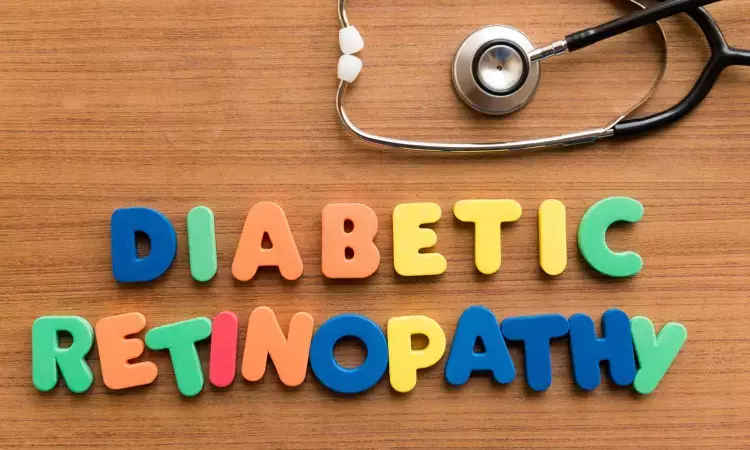- Home
- Medical news & Guidelines
- Anesthesiology
- Cardiology and CTVS
- Critical Care
- Dentistry
- Dermatology
- Diabetes and Endocrinology
- ENT
- Gastroenterology
- Medicine
- Nephrology
- Neurology
- Obstretics-Gynaecology
- Oncology
- Ophthalmology
- Orthopaedics
- Pediatrics-Neonatology
- Psychiatry
- Pulmonology
- Radiology
- Surgery
- Urology
- Laboratory Medicine
- Diet
- Nursing
- Paramedical
- Physiotherapy
- Health news
- Fact Check
- Bone Health Fact Check
- Brain Health Fact Check
- Cancer Related Fact Check
- Child Care Fact Check
- Dental and oral health fact check
- Diabetes and metabolic health fact check
- Diet and Nutrition Fact Check
- Eye and ENT Care Fact Check
- Fitness fact check
- Gut health fact check
- Heart health fact check
- Kidney health fact check
- Medical education fact check
- Men's health fact check
- Respiratory fact check
- Skin and hair care fact check
- Vaccine and Immunization fact check
- Women's health fact check
- AYUSH
- State News
- Andaman and Nicobar Islands
- Andhra Pradesh
- Arunachal Pradesh
- Assam
- Bihar
- Chandigarh
- Chattisgarh
- Dadra and Nagar Haveli
- Daman and Diu
- Delhi
- Goa
- Gujarat
- Haryana
- Himachal Pradesh
- Jammu & Kashmir
- Jharkhand
- Karnataka
- Kerala
- Ladakh
- Lakshadweep
- Madhya Pradesh
- Maharashtra
- Manipur
- Meghalaya
- Mizoram
- Nagaland
- Odisha
- Puducherry
- Punjab
- Rajasthan
- Sikkim
- Tamil Nadu
- Telangana
- Tripura
- Uttar Pradesh
- Uttrakhand
- West Bengal
- Medical Education
- Industry
Rapid HbA1c reduction not associated with worsening of diabetic retinopathy

Spain: The rapid reduction of HbA1c is not associated with progression of mild or moderate nonproliferative DR (NPDR), a recent retrospective study published in Diabetes Care has suggested.
The early worsening of diabetic retinopathy (EWDR) due to rapid reductions in blood glucose levels is a concern in the treatment of diabetes. In the study, Simo R and colleagues aimed to evaluate the significance of this issue in individuals with type 2 diabetes and mild or moderate nonproliferative diabetic retinopathy (NPDR), who make up the majority of patients with retinopathy seen in primary care settings. The study sought to determine whether rapid reductions in HbA1c levels are associated with the progression of diabetic retinopathy in this population.
Conducted as a retrospective nested case-control study, researchers used the SIDIAP ("Sistema d'informació pel Desenvolupament de la Recerca a Atenció Primària") database to select 1,150 individuals with EWDR and 1,150 matched controls (patients with retinopathy but without EWDR). The main variable analyzed was the magnitude of the reduction in HbA1c levels over the previous 12 months. The reduction was categorized as rapid (>1.5% reduction in <12 months) or very rapid (>2% reduction in <6 months).
● The study did not find any significant difference in HbA1c reduction between the cases and controls (0.13 ± 1.21 vs. 0.21 ± 1.18).
● The reduction in HbA1c did not show a significant association with the worsening of diabetic retinopathy, both in unadjusted analyses and in adjusted statistical models that accounted for confounding variables such as duration of diabetes, baseline HbA1c levels, presence of hypertension, and use of antidiabetic drugs.
● Even when stratifying the patients based on their baseline HbA1c levels, there was no evidence to suggest that individuals with higher HbA1c levels had a higher risk of developing EWDR.
The findings of this study suggest that rapid reductions in HbA1c levels are not associated with the progression of mild or moderate nonproliferative diabetic retinopathy. This provides reassurance to healthcare professionals and individuals with type 2 diabetes that aggressive glycemic control efforts aiming to lower HbA1c levels are unlikely to lead to worsening of retinopathy in this specific patient population.
However, it is important to note that these results are specific to individuals with mild or moderate NPDR, and further research is needed to investigate the effects of rapid HbA1c reduction in patients with more advanced stages of retinopathy. Overall, this study contributes valuable insights into the management of diabetic retinopathy and emphasizes the importance of individualized treatment approaches based on the severity of retinopathy and overall patient health.
Reference:
Simó, R., Franch-Nadal, J., Vlacho, B., Real, J., Amado, E., Flores, J., Mata-Cases, M., Ortega, E., Rigla, M., Vallés, J.-A., Hernández, C., & Mauricio, D. (2023). Rapid reduction of HbA1c and Early worsening of diabetic retinopathy: A real-world population-based study in subjects with type 2 diabetes. Diabetes Care, dc222521. https://doi.org/10.2337/dc22-2521
Dr Kamal Kant Kohli-MBBS, DTCD- a chest specialist with more than 30 years of practice and a flair for writing clinical articles, Dr Kamal Kant Kohli joined Medical Dialogues as a Chief Editor of Medical News. Besides writing articles, as an editor, he proofreads and verifies all the medical content published on Medical Dialogues including those coming from journals, studies,medical conferences,guidelines etc. Email: drkohli@medicaldialogues.in. Contact no. 011-43720751


